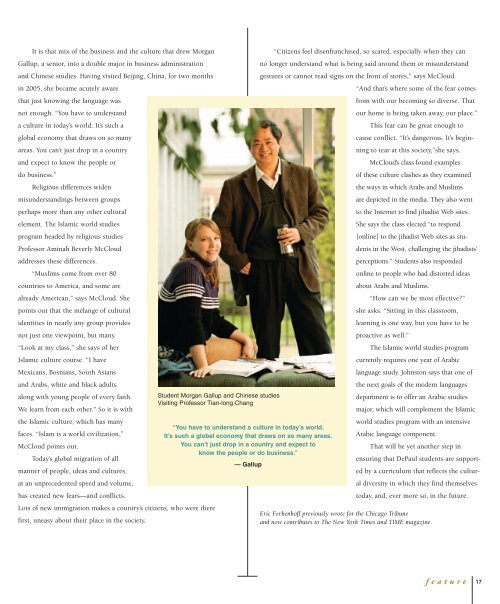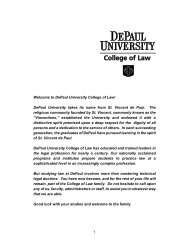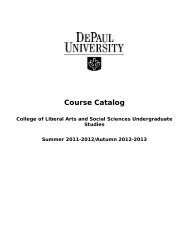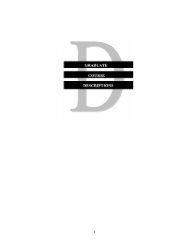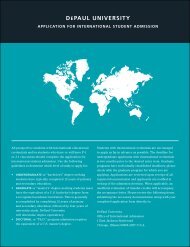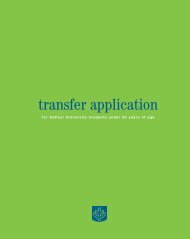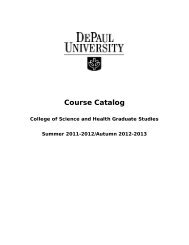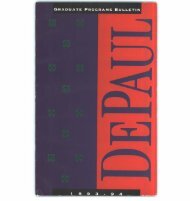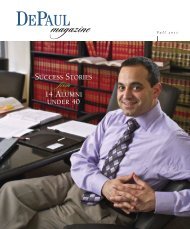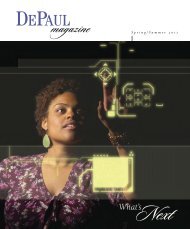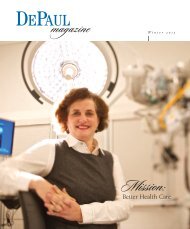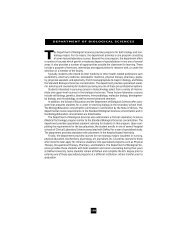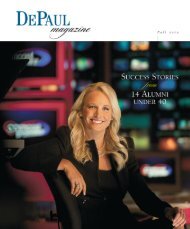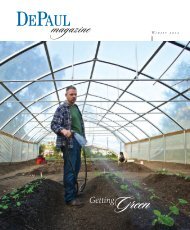Create successful ePaper yourself
Turn your PDF publications into a flip-book with our unique Google optimized e-Paper software.
It is that mix of the business and the culture that drew Morgan<br />
Gallup, a senior, into a double major in business administration<br />
and Chinese studies. Having visited Beijing, China, for two months<br />
in 2005, she became acutely aware<br />
that just knowing the language was<br />
not enough. “You have to understand<br />
a culture in today’s world. It’s such a<br />
global economy that draws on so many<br />
areas. You can’t just drop in a country<br />
and expect to know the people or<br />
do business.”<br />
Religious differences widen<br />
misunderstandings between groups<br />
perhaps more than any other cultural<br />
element. The Islamic world studies<br />
program headed by religious studies<br />
Professor Aminah Beverly McCloud<br />
addresses these differences.<br />
“Muslims come from over 80<br />
countries to America, and some are<br />
already American,” says McCloud. She<br />
points out that the mélange of cultural<br />
identities in nearly any group provides<br />
not just one viewpoint, but many.<br />
“Look at my class,” she says of her<br />
Islamic culture course. “I have<br />
Mexicans, Bosnians, South Asians<br />
and Arabs, white and black adults<br />
along with young people of every faith.<br />
We learn from each other.” So it is with<br />
the Islamic culture, which has many<br />
faces. “Islam is a world civilization,”<br />
McCloud points out.<br />
Today’s global migration of all<br />
manner of people, ideas and cultures,<br />
at an unprecedented speed and volume,<br />
has created new fears—and conflicts.<br />
Lots of new immigration makes a country’s citizens, who were there<br />
first, uneasy about their place in the society.<br />
Student Morgan Gallup and Chinese studies<br />
Visiting Professor Tian-long Chang<br />
“You have to understand a culture in today’s world.<br />
It’s such a global economy that draws on so many areas.<br />
You can’t just drop in a country and expect to<br />
know the people or do business.”<br />
— Gallup<br />
“<strong>Citizens</strong> feel disenfranchised, so scared, especially when they can<br />
no longer understand what is being said around them or misunderstand<br />
gestures or cannot read signs on the front of stores,” says McCloud.<br />
“And that’s where some of the fear comes<br />
from with our becoming so diverse. That<br />
our home is being taken away, our place.”<br />
This fear can be great enough to<br />
cause conflict. “It’s dangerous. It’s beginning<br />
to tear at this society,”she says.<br />
McCloud’s class found examples<br />
of these culture clashes as they examined<br />
the ways in which Arabs and Muslims<br />
are depicted in the media. They also went<br />
to the Internet to find jihadist Web sites.<br />
She says the class elected “to respond<br />
[online] to the jihadist Web sites as students<br />
in the West, challenging the jihadists’<br />
perceptions.” Students also responded<br />
online to people who had distorted ideas<br />
about Arabs and Muslims.<br />
“How can we be most effective?”<br />
she asks. “Sitting in this classroom,<br />
learning is one way, but you have to be<br />
proactive as well.”<br />
The Islamic world studies program<br />
currently requires one year of Arabic<br />
language study. Johnston says that one of<br />
the next goals of the modern languages<br />
department is to offer an Arabic studies<br />
major, which will complement the Islamic<br />
world studies program with an intensive<br />
Arabic language component.<br />
That will be yet another step in<br />
ensuring that <strong>DePaul</strong> students are supported<br />
by a curriculum that reflects the cultural<br />
diversity in which they find themselves<br />
today, and, ever more so, in the future.<br />
Eric Ferkenhoff previously wrote for the Chicago Tribune<br />
and now contributes to The New York Times and TIME magazine.<br />
f e a t u r e<br />
17


